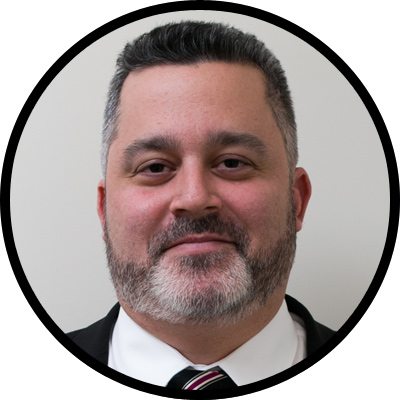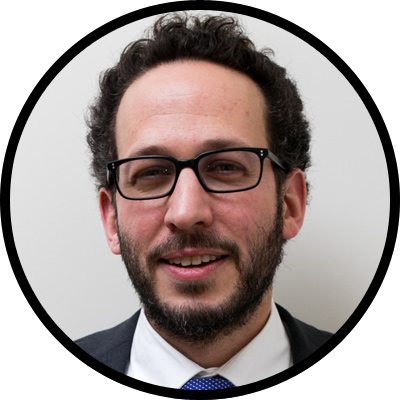Three criminal defence lawyers talk about Jian Ghomeshi’s first week in court
Throughout Jian Ghomeshi’s trial, we’ll be bringing you insights from a panel of criminal defence attorneys who have worked on behalf of other people charged with sexual assaults. Meet the panel:
Q: What are your general reactions to the trial’s opening week, up to the end of the first complainant’s testimony?

Rahamim: There’s clearly an overwhelming, almost smothering level of media coverage and analysis that we’ve seen on this trial. But when you take away the media hype and the high profile nature of the accused, this is the type of trial that can happen on any given day in any given courthouse in this city.

Kerbel: I think that the public went into this with a generally fairly confident view of Jian Ghomeshi’s guilt, and I think the past few days with the first complainants has shaken the public’s certainty, to some extent.

Stewart: I think that there have been some real challenges for the crown so far. It goes without saying that they seem to have been blindsided by the emails of the first complainant. The crown has a disclosure obligation to the defence, but there aren’t those same disclosure obligations in the other direction, except in really rare circumstances. Those emails had a pretty big impact, I think it’s safe to say.
Q: How would you characterize Henein’s approach so far?

Stewart: I don’t think it has been overly vicious, or that she has been relying inappropriately on rape myths. She certainly gave the first complainant an opportunity to explain the email.

Kerbel: I think it’s actually kind of rare to see a vicious attack. That kind of really strident cross-examination can cause defence counsel a lot of problems.

Stewart: I would just add that being a complainant is not, in the criminal justice system, a fun experience. It’s very difficult, obviously, to have to get up there and talk about the incredibly intimate details of your life. But that doesn’t mean that what Ms. Henein did was inappropriate.
Q: How does it feel, emotionally, to mount that kind of defence?

Rahamim: This is how defence counsel make their money, so to speak. The most fundamental tool that we have as criminal lawyers is cross-examination. And there’s no doubt that it’s impossible to rid yourself of any emotional feeling, but the truth is, as defence lawyers we have to defend. And we do so vigorously, within the confines of the law.

Stewart: It’s a tough and complex issue. Female defence lawyers aren’t robots. We understand how traumatic it can be for sexual assault complainants, and we understand the long history of inequality and the sexual politics at play. But we also have a job to do in a very male-dominated field. We fight for our clients as best we can.
Q: How much do seemingly small discrepancies in a complainant’s account actually matter to the outcome of a case like this one?

Kerbel: These weren’t small inconsistencies. They are the kind of inconsistencies that could really make the crown’s ability to prove the case beyond a reasonable doubt difficult, because there’s no other evidence: no forensic evidence, no third party witnesses. If Jian Ghomeshi testifies, it will become a he-said-she-said.

Stewart: Studies show that victims of violence don’t always act predictably. I think the judge will have to consider that.
Q: Are there any strategies for defending somebody like Ghomeshi that don’t involve attacking the complainants’ credibility?

Rahamim: I think you’re seeing that unfold before your eyes right now. You didn’t see Ms. Henein attack the first complainant in the bulldog style that everybody thought that she would. Rather, she used a strategy where she rather gently pressed on certain points and really got the witness to impeach herself on those emails.

Stewart: The only way to defend a case like this without bringing credibility into the picture would be with evidence like statements from other witnesses who saw what happened, and we don’t have any of those. I mean, we can’t just look at somebody and decide whether or not they’re telling the truth.
Q: At this point in the trial, what’s going on behind closed doors? Are both sides more or less done with their prep work, or are they up all night strategizing?

Rahamim: A trial is very much a living and breathing entity. You’re constantly rethinking and revising your strategy, responding to information that’s come up in the examination-in-chief of a witness that is unexpected. You’re up all night preparing, revising your cross-examinations, preparing and constantly rethinking your decisions as to whether or not you want to call your client to testify.

Kerbel: It’s long hours during a trial in most cases. They’re not going for drinks after court.

Stewart: The stress level is extremely high. You’re working on very little sleep. You’re completely exhausted and stressed.
Q: Henein didn’t challenge the first complainant about the details of the actual alleged assault. Was that a tactical choice?

Kerbel: Generally speaking, where you intend to impeach the credibility of an opposing witness, you’re required out of fairness to put to that witness what you anticipate your client’s version of events is going to be. So, for example, you might say, “Well, sure, he punched you, but you were actually consenting to that punch.” You didn’t see Ms. Henein doing any of that, and that may be an indication that she doesn’t intend to call Mr. Ghomeshi to answer those allegations. She may be content to rely on the problems that she’s raised with the witnesses’ evidence.
Q: Have any of you ever dealt with Henein professionally?

Rahamim: I have. She’s naturally brilliant, and somebody who I’d classify as very, very tenacious. She’s somebody who really does everything she can possibly do to provide her clients with the best defence imaginable. She’s also somebody who is very, very good and capable on the law, which is obviously very important.
Q: This trial is judge-only, as opposed to a jury trial. Is that going to make any kind of difference in the sorts of strategies we see used by both sides?

Stewart: There’s going to be a lot less drama in a judge-alone trial.

Kerbel: I think in a judge-alone trial you can probably take a more technical approach to the evidence. You don’t have to worry about wowing 12 people to keep their interest. You can get into nitty gritty aspects of the evidence that a jury may not care about, but a judge may. And a judge is going to have to deal with all that evidence in his or her reasons for judgement, which may help you lay the foundation for an appeal.

Rahamim: The other element to going judge-alone is that they were able to forego a preliminary inquiry and head straight to trial. One of the reasons I can think of for forgoing a preliminary inquiry is the fact that we have multiple complainants going to the press, and sometimes going to the press more than once. As defence counsel, you usually want a preliminary inquiry to test the witness, but also to get another sworn version of their events that may be inconsistent with the version they gave to the police. So perhaps Mr. Ghomeshi is thinking that he doesn’t need a preliminary inquiry because he’s already got 19 other versions that he can cross-examine the witness on.
Q: How much do you think the amount of media interest in this case will affect the outcome?

Rahamim: By virtue of the fact they went judge-alone, I don’t think it’s going to affect the outcome at all. You have Justice Horkins presiding, who is a very senior judge. I’m 100 per cent certain that this judge would never ever be swayed by media pressure at all, despite the fact that it is overwhelming.

Kerbel: What the coverage might have done is contaminate some of the complainants’ evidence, even inadvertently. We call that inadvertent collusion, and that may be an argument the defence will make.
Q: Have any of you noticed any features of the case that the media has missed?

Rahamim: Yeah. Who is carrying their bags when they enter the courtroom? I don’t know if you’ve noticed, but whenever they get out of the car they seem to be just holding their cell phones. Usually we carry these enormous bags that are filled with paper, so the mystery of who is carrying the bags lives on. We’re going to have to figure that one out.
Q: Wow, that’s deep.

Kerbel: One thing that the media seems to overlook is the presumption of innocence in the days leading up to the trial. This is a man who, whether he’s guilty or innocent, was roundly convicted in the media.

Stewart: I was surprised by the personal attacks on Marie Henein, which as a female defence lawyer I found a bit unsettling. There was an article in the Ottawa Citizen two days ago and the first line was, “There’s a special place in hell for women who don’t help other women.” It was apparently a Madeline Albright quote and it was in clear reference to Henein. What’s the end game of that attack? That only men should be cross-examining sexual assault complainants? I was pretty surprised by that.
Q: So Indira, do you agree with Zach that the press has ignored Ghomeshi’s presumption of innocence?

Stewart: I think it’s fair to say that most people sort of assumed he was guilty off the bat. But it’s complicated, because at the same time it’s raised a lot of issues about violence against women, which has been really useful and has got people talking.

Kerbel: It’s natural to say, “Look, 25 people are saying the same thing.” And that’s true. But they’re saying the same thing without those assertions having been challenged under cross-examination. When there’s a rush to judgement, miscarriages of justice occur.

Stewart: That’s entirely true. And you know, Jian Ghomeshi, he’s not white, but he’s a very privileged, very powerful man. Most of our clients do not fit that description. Most of them are pretty marginalized. It’s incredibly important that their rights are protected, and the presumption of innocence is paramount.
Q: At this point in the trial, how many of you think that Ghomeshi will testify?

Stewart: I originally thought for sure that he would testify. I thought, this is a guy who wants to tell his side of the story, and at any cost, basically. Now I’m not so sure.

Kerbel: It’s hard to say at this point in the trial. If it was just the first complainant I think it would be highly unlikely that he would take the stand, because of the problems with her testimony. But there are two more complainants.

Rahamim: I can tell you that having your client testify is the kind of decision that you agonize over and constantly revisit throughout the course of a trial—especially when you have a client who’s made a name for himself in the media. It’s hard as a lawyer to tell that person that you don’t think he should testify. So I imagine there’s some serious debate going on behind the scenes.
Q: So it sounds like you’re all coming down on the side of “maybe.”

Stewart: I mean, there’s a good chance that Ms. Henein hasn’t made that decision yet.

Kerbel: At the end of the day, it’s Mr. Ghomeshi’s choice.
Q: Do any of you want to make any bold predictions? Yes or no: will he testify?

Rahamim: I would say no. If you held a gun to my head.

Kerbel: I can’t say. I don’t know.

Stewart: I really don’t know, but just to be contrary I’ll say yes.

Rahamim: So you get three lawyers with three different opinions.








